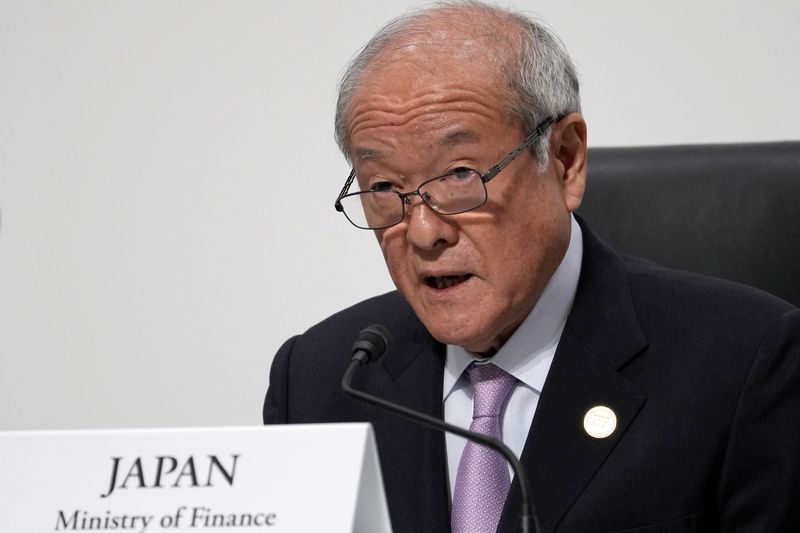 © Reuters. FILE PHOTO: Japanese Finance Minister Shunichi Suzuki speaks during the presidency press conference at the G7 meeting of finance ministers and central bank governors, at Toki Messe in Niigata, Japan, Saturday, May 13, 2023. Shuji Kajiyama/Pool via RE
© Reuters. FILE PHOTO: Japanese Finance Minister Shunichi Suzuki speaks during the presidency press conference at the G7 meeting of finance ministers and central bank governors, at Toki Messe in Niigata, Japan, Saturday, May 13, 2023. Shuji Kajiyama/Pool via RE
By Tetsushi Kajimoto
TOKYO (Reuters) - Japan's Finance Minister Shunichi Suzuki kept up verbal warnings on Tuesday against the yen's depreciation, saying he would respond appropriately if currency moves became excessive.
Suzuki's latest warning shot came as the dollar traded at 143.43 yen, down 0.06% from late U.S. levels. Japanese officials have sounded the alarm in recent days over rapid weakening of the currency.
"Sharp (OTC:SHCAY) and one-sided moves" were observed recently in the currency market, he added.
Though he gave little clue whether Japan would intervene to back the yen, the tone of his warning was not so sharp as last year's, when he vowed decisive steps because he was deeply concerned about the weak currency.
"It was important for currencies to move in a stable fashion, reflecting economic fundamentals," Suzuki told reporters after a cabinet meeting.
"We will closely watch currency market moves with a strong sense of urgency and will respond appropriately if the moves become excessive."
A weaker yen boosts profits for exporters and companies with overseas operations, but on the other hand, higher import bills weigh on companies and consumers.
With both positive and negative effects it is difficult to say which factors outweigh the rest, Suzuki said.
"Rising prices have become a big policy issue," he added. "We will closely watch price trends and impacts on people's livelihood and businesses."
On Tuesday, Japan's top currency diplomat Masato Kanda retained his post for a second straight year in an annual reshuffle, as a jittery market requires Kanda's ability to intervene to turn the tide in currencies.
Suzuki did not elaborate on the reason for retaining Kanda, but called him "the right person in the right job".
He added, "Japan needs to keep close co-ordination with G7 and other countries concerned. We take into account the experience and human networks Kanda has gained through his job."
Under Kanda, Japan made rare interventions last September and October to stem weakness in the yen that had carried it as low as just below 152 against the dollar.
Speculation is rife that Japanese authorities may intervene again to support the yen if it falls to 145 to the dollar, near a level that prompted intervention in September.

